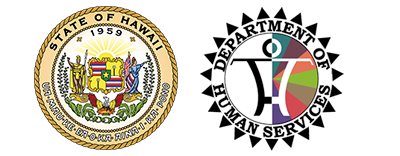Taxes and Healthcare FAQs
Posted on Mar 24, 2016 in MainFrequently Asked Questions
about How Taxes Affect Healthcare Coverage
The Department of Human Service cannot provide tax advice. Because our Med-QUEST Division helps individuals and families get health insurance through HealthCare.gov, we are providing some basic information to help you understand how your tax filings can affect your healthcare coverage.
If you received advanced premium tax credits, you MUST file your taxes, even if a filing exemption applies to you. It is a federal government requirement. This a new and important step this year that will preserve your ability to receive help with health insurance in 2017.
More specifically, filing taxes allows you to reconcile the amount you received in tax credits. If you do not file your taxes and reconcile those amounts, you may not be eligible for tax credits for 2017 healthcare coverage. This can translate to significantly higher out-of-pocket costs for you when it comes to healthcare coverage.
The Taxpayer Advocate Service provides important information about how APTC affect you and the importance of filing taxes in a special webpage on these credits.es here
You will need to bring a copy of your Form 1095-A in addition to other important financial documents.
Additionally, filing your taxes and accounting for those APTC ensures you can receive tax credits again in 2017. In other words, it will make it possible for you to get financial assistance later on that you will not be able to get if you do not file a tax return.
If you received a 1095-B or C form, then you received your health insurance through your employer and did not receive those tax credits. Some employers may not automatically provide you with a Form 1095 because they are not needed for filing.
Healthcare.gov provides assistance on these forms and how it may affect how you file your taxes.
Info Lines
| Public Assistance Information Line | 855-643-1643 |
| Child Abuse Reporting | 808-832-5300 |
| Child Abuse Reporting from neighbor islands | Toll Free: 1-888-380-3088 |
| Child Trafficking Reporting | 808-832-1999 |
| Child Trafficking Reporting from neighbor islands | Toll Free: 1-888-398-1188 |
| Adult Abuse Reporting | 808-832-5115 |
| Medical Assistance | |
| Info | 211 |
| Emergency | 911 |
| Public Housing Application | 808-832-5960 |
| 988 Suicide & Crisis Lifeline | 988 |
